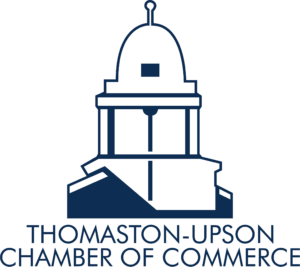Navigating financial challenges is a constant in the business landscape, with managing debt often being a pivotal concern. Crafting effective strategies to address these hurdles can turn financial strain into a foundation for stability and growth. Thoughtful planning allows businesses to restructure burdens, aligning them with broader goals of sustainability and operational efficiency. Streamlining financial practices not only eases immediate pressures but also supports healthier decision-making for the future. Fostering this balance transforms challenges into catalysts for progress, setting the stage for sustained success.
Streamline Financial Records for Better Business Financing
Maintaining well-organized, up-to-date, and easily accessible business and financial records is essential for securing financing or assistance when needed. By keeping your documents in order, you can quickly provide accurate information to lenders, investors, or advisors, ensuring a smoother and more efficient process. Saving important files as PDFs offers the advantage of preserving formatting and making them universally shareable across different devices and platforms. Utilizing an online tool to convert various file formats into high-quality PDFs can streamline this process, allowing you to follow best practices for printing to PDF and ensuring your records look professional and consistent.
Enhance Financial Stability Through Regular Benchmarking
To keep your business financially healthy, regularly assess your financial status against industry benchmarks. This practice helps you identify discrepancies between your performance and industry standards, highlighting areas needing improvement. For example, if your profit margins are lower than the industry average, it might be time to reevaluate your pricing strategy or cost management. Regular benchmarking fosters a culture of continuous improvement and innovation, ultimately leading to enhanced operational efficiency and a stronger market position.
The Importance of Monthly Financial Statement Reviews
Reviewing your financial statements monthly ensures that all transactions are accurately recorded and any discrepancies are promptly addressed. By comparing your internal records with bank statements, you can quickly identify and correct errors, such as transposition mistakes. Utilizing online banking platforms to download statements in formats like CSV can facilitate this process. Implementing a document management system can further streamline the retrieval of source documents, aiding in the swift resolution of any issues. Regular reviews not only maintain accurate financial records but also safeguard your business against potential fraud by highlighting any unusual patterns.
Streamline Your Finances by Auditing Subscriptions
Regularly evaluating and optimizing your subscription services and recurring expenses can significantly enhance your business’s financial health. Conduct a thorough audit of your monthly and annual subscriptions to identify services that are no longer necessary or underutilized. For instance, one business owner managed to cut nearly $60 from their monthly budget by eliminating unused services. This process not only reduces unnecessary costs but also ensures that your spending aligns with your current business needs. Setting up a calendar reminder for an annual review can prevent overlooked renewals and keep your financial strategy on track.
Evaluating Business Debt Consolidation Options
Assessing business debt consolidation involves exploring diverse financing options tailored to small businesses. Lenders, ranging from banks to online platforms, present varying terms that can shape your financial strategy. Some financing paths may lower interest rates or adjust repayment timelines, easing cash flow challenges. Balance transfer credit cards with promotional interest offers can also streamline debt management for businesses juggling multiple accounts. Thoughtful comparison of these solutions enables alignment with your financial objectives.
Prioritize High-Interest Debt for Financial Relief
Focusing on paying off high-interest debt first can significantly improve your financial health. High-interest debts, such as those from credit cards, can quickly accumulate and become a substantial burden. By targeting these debts, you reduce the principal and the interest owed, freeing up more funds each month for savings or other essential expenses. Implementing a strategic approach, like the avalanche method, where you pay off the highest interest debts first, can save you money in the long run.
Discovering Cost-Effective Alternative Financing Solutions
Exploring alternative financing options with lower interest rates can be a strategic move when seeking to alleviate business debt. While traditional lenders like banks often offer lower rates, they may require collateral and have stringent approval processes. In contrast, alternative lenders, such as online platforms, provide quicker access to funds and may not demand collateral, though they typically charge higher interest rates. By thoroughly comparing the interest rates, fees, and overall costs between these options, you can identify more affordable solutions that align with your business needs.
Employing thoughtful financial strategies allows businesses to manage debt more effectively and improve overall stability. Maintaining accurate financial records ensures clarity in decision-making and supports long-term planning. Strategic approaches to reducing liabilities can free up resources for growth and innovation. Consistent focus on fiscal responsibility helps create a foundation for sustainable operations. A proactive mindset transforms financial challenges into opportunities for progress.
Discover how the Thomaston-Upson Chamber of Commerce can help you drive strategic economic growth and enhance your business success in Upson County!This Hot Deal is promoted by Thomaston-Upson Chamber of Commerce.

